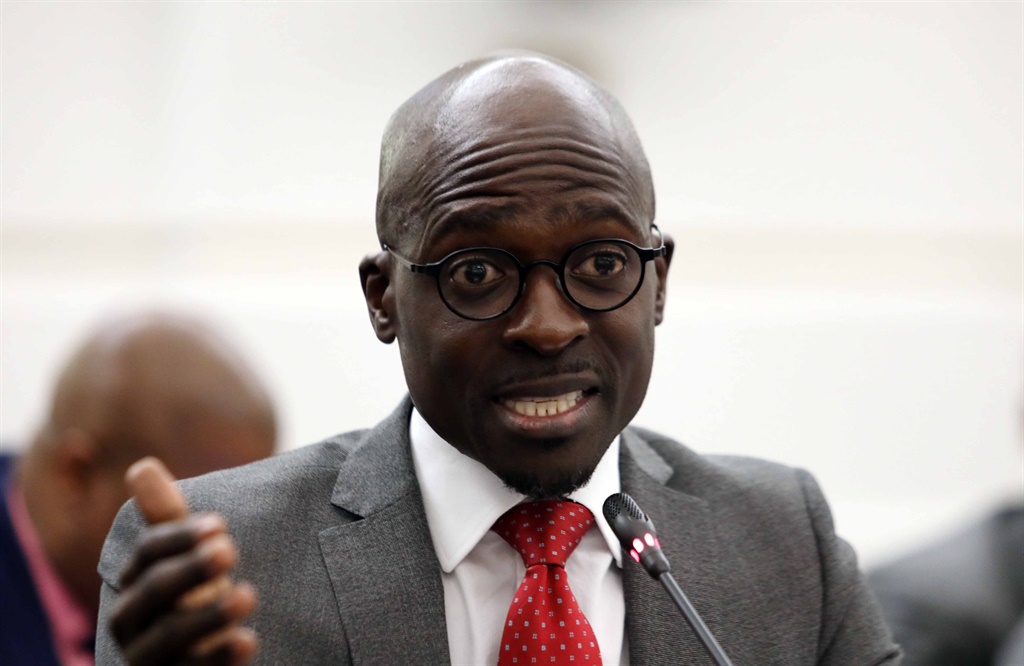News24.com | Nene\, Gigaba\'s departure puts public morality back into political leadership
Nene, Gigaba's departure puts public morality back into political leadership
2018-11-15 09:20

It became clear under Jacob Zuma that political power wasn't real unless stripped of its moral component. The resignation of Malusi Gigaba and Nhlanhla Nene could signal an important departure from that era, writes Mpumelelo Mkhabela.
The
resignation of Malusi Gibaba shortly after the departure Nhlanhla Nene from Cabinet
could signal an important shift in the intersection between political power and
public morality. But only if such resignations became a norm.
Political
power for those who hold public office is about the means or authority to take
decisions on behalf of the whole public or sections of it. Public morality is
about exercising such political power while simultaneously having regard for
values of honesty, sound judgement, public trust, commitment to the oath of
office and fidelity to the Constitution.
Visit News24 Voices for informed and expert opinions on the news
Under Jacob
Zuma's administration, there was tension between political power and public
morality. Zuma's personality and leadership style acutely symbolised this. His
rise to power defied the force of gravity of public morality. Once in power, institutions
were transformed into his image. And all that followed across nearly all stake
institutions and the ANC replicated what he represented: tension between
political power and public morality. Raw political power trumped public
morality.
So, where
does Gigaba fit into this tension? It would have been unthinkable in the past
that someone would resign simply because he was found to have lied under oath. This
would have been a minor misdemeanor that could only serve as a credit for a
politician to hold onto public office or rise further.
You ought
to have done something wrong to be trusted, according to the unwritten oath of
wrongdoers who controlled the distribution of political power in the state. To
be too honest and to demonstrate fidelity to the Constitution of the Republic
was to invite suspicion, ridicule or even ostracisation. So, everyone,
including people the general public thought were honest people, like Nhlanhla
Nene, had to fit in. To fit in, you had to sign to pledge loyalty to the
course.
Unlike the
oath of office ministers take in public when they are sworn in, the oath of
dishonesty, though unwritten, had to be signed in deed. Officials had to visit
the Gupta compound or attend illegal meetings with banks who refused to do
business with Guptas or something of the sort to demonstrate your fitness to
hold office. Who can forget how swimming pools became fire pools overnight?
If not
immediately available to pledge support by doing something dishonest, potential
appointees to senior positions needed to have some blemish from their personal histories
that could be used against them in future.
A senior
official, who one hopes will voluntarily appear before the state capture commission
of inquiry, was once told by the Guptas she would never be promoted. Her sin
was to refuse a Cabinet appointment that had strings attached to it.
So it was
that many honest people in public institutions had to prove their ability to be
dishonest in order to be trusted by the guy who ran our country. This explanation
will hopefully find its way to the records of the state capture commission
instead of the defensiveness we are still witnessing.
The extent
to which state capture succeeded by tempering with people's sense of personal
moral judgement is yet to be fully explored by the commission. Officials, especially
those who succumbed to the pressures, haven't come out to say how they were hypnotised
and fell for the scheme. Yet, this was in part how public morality was turned
into immorality under Zuma.
It became crystal
clear under Zuma that political power wasn't real unless stripped of its moral
component. The resignation of Gigaba as home affairs minister and Nene as
finance minister could signal an important departure from that era, but only if
such resignations become part of the political norm and culture, not damp squibs.
This is not
to suggest that the two resignations necessarily carry the same moral weight.
Nene's resignation is more palatable that Gigaba's. Nene voluntarily approached
President Cyril Ramaphosa with a request be resign. No finding by any institution
had been made against him. His resignation was not accompanied by unnecessary explanations
about putting the president under pressure or that the resignation didn't mean
admission of guilt and all that kind of stuff.
Nene's
resignation had the unreserved tone about it, although he still needs to make a
personal confession why he met the Guptas. To simply be honest and say, "I
wanted to make the president happy so that I could keep a position in Cabinet",
would be more believable than the standard answer, "I met the Guptas like
I would meet other business leaders."
Gigaba wants
the public to believe he did nothing wrong despite a contrary finding by the
courts. His resignation lacks redeeming features. He'll probably hold on to the
position as a member of Parliament. Nene quit Parliament.
The common
denominator in the resignations is that there was some appreciation – grudgingly
in Gigaba's case and unreserved for Nene – that political power needs a dose of
public morality.
The
challenge is how to make such resignations a durable part of our political
culture among all holders of political power including opposition parties. Some
leaders of opposition parties claim the moral high ground when criticising the
ANC, but they keep their own big and "smaller-nyana skeletons".
- Mkhabela is a political analyst with the Department of Political Sciences at the University of South Africa.
Disclaimer: News24 encourages freedom of speech and the expression of diverse views. The views of columnists published on News24 are therefore their own and do not necessarily represent the views of News24.

